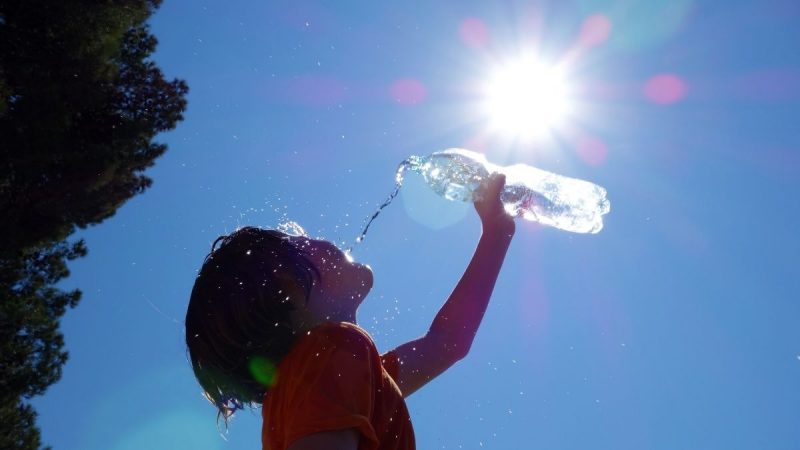Brace yourselves, the UAE just set its hottest May temperature ever, and summer hasn’t even officially started. On a blazing Friday afternoon, the mercury hit a sweltering 50.4°C in Al Shawamekh, Abu Dhabi, smashing the country’s previous May record. If you felt like you were roasting, you weren’t imagining it, this is the real deal.
UAE Sizzles At 50.4°C! May Breaks All The Wrong Records
According to the National Centre of Meteorology (NCM), the temperature peaked at exactly 2:30 PM, marking the highest May temperature since 2003, when official tracking began. The previous record stood at 50.2°C, logged back in 2009. Now, with that number dethroned, it’s clear that extreme heat is setting in earlier than expected.
April already gave us a preview, clocking in as the hottest April ever with an average daily high of 42.6°C, higher than the previous record of 42.2°C from April 2017.
Summer’s Here Early And UAE’S Temperature Is Furious
There’s absolutely nothing new about scorching summer temperatures in Dubai, but this early-season heat has turned heads. Experts indicate a shift in the climate patterns. The warning is out and clearly suggests a spike in the temperature could be a sign of a more intense and prolonged heatwave.
With the season only just creeping in, residents are being urged to treat this heat with preventive measures. The NCM suggests firm guidelines amid this rising temperature. It suggests avoiding direct sun, hydrating often, dressing light, and slathering sunscreen before you move out.
50.2°C is not just uncomfortable but dangerous. It causes heatstroke, dehydration, and other serious conditions. These guidelines should be especially followed by vulnerable groups like the elderly, children, and outdoor workers. Employers should avoid sending staff out in the sun during peak hours.
Also Read: NCM Weather Update For The UAE To Al Freej Fridge Campaign In Dubai; 6 UAE Updates For You
The Bigger Picture
While the weather app may give you hourly updates, this record heat is part of a larger climate trend. Rising temperatures in the region are no longer rare spikes but consistent patterns, and scientists are watching closely. For now, though, it’s less about the data and more about survival.
So, crank up the AC, double up on water bottles, and think twice before stepping outside unnecessarily.
Cover Image Courtesy: Canva Stock Images

